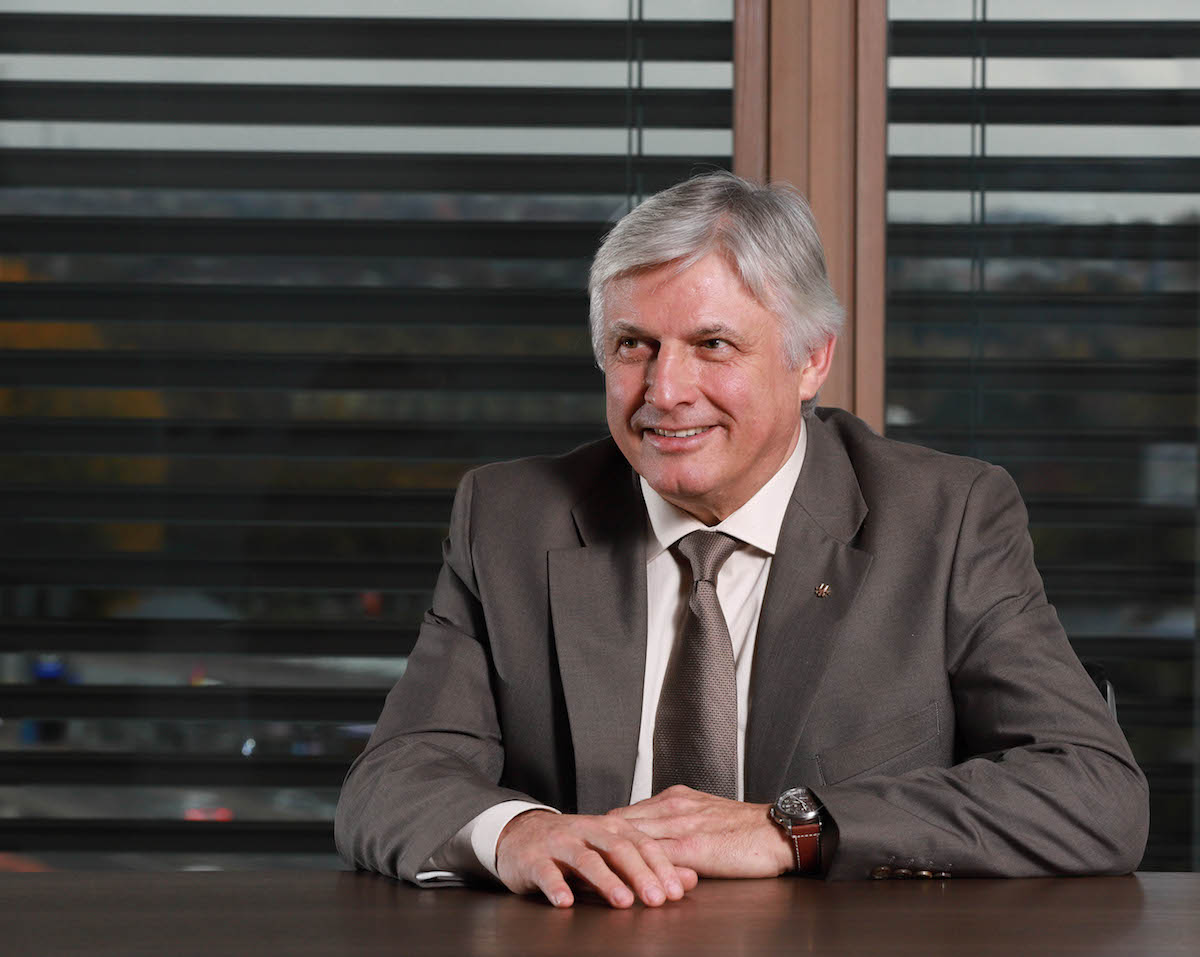
The FISU Healthy Campus Label project will be launched on 12 May 2020. The project aims to impact the lifestyles and well-being of millions of university students around the world, by encouraging physical activity and healthy choices on campuses.
Ahead of the worldwide launch, we spoke to FISU Secretary General-CEO Eric Saintrond about the project, from inception to launch, and what FISU’s objectives are with this unprecedented project. Excerpts from the interview:
Q: How has the process been – from conceptualisation of the Healthy Campus project to getting ready to launch it?
A: This project was something we had thought of a long time ago. But then we had to move the FISU offices from Belgium to Switzerland and finally to relocate the FISU Headquarters to where we are today, on the University of Lausanne campus. Nearly 75% of the staff also changed during the same time. So, the project was on our minds, but priorities were different for some time. Now, we are ready, and this is our prime focus.
Through this project, we have found a way to extend our activities to all students; not just elite student-athletes, but university students in general. As you know, the student-athletes that take part in FISU events over a two-year period may be ten or twenty thousand. But we believe that FISU has a very important social responsibility and we want to reach millions of students. Perhaps by 2025, we are talking about reaching 200 million.
Is this aim of reaching hundreds of millions of university students, realistically possible?
There are more than 40,000 universities in the world. Even if we reach only 1% of them at the beginning, we will still be reaching 400-500 universities, across five continents. The bigger universities have anywhere between 20,000-50,000 students enrolled so even with just one percent we can engage with millions of students around the world.
Of course, it will not happen overnight. It will take time to develop this project as it’s not a short or even medium-term project. We see this as a long-term investment that we are starting on 12 May.
What benefits do the universities have, in signing up for this programme?
By signing up, the universities will be able to enter a network that doesn’t exist globally today. There is certainly no such network that covers so many aspects of campus life; physical activity and sport, nutrition, disease prevention, mental and social health, risk behaviour, environmental sustainability and social responsibility. There is no common programme or platform for universities like this, in the world.
Thanks to this Healthy Campus network, the universities will be able to share experiences and best practices. They will be able to evaluate themselves and compare their level of engagement in these fields with the best in the world. They will receive toolkits and guidance to progress quickly in these areas. We already have seven major universities with us, who were part of the pilot project: University of Western Australia, University of Johannesburg, University of Torino, RUDN Moscow, Peking University, La Matanza of Argentina which has 50,000 students and of course University of Lausanne (UNIL) which already has an advanced development of healthy lifestyle on campus. Having these major world universities as part of the project has given us a strong first step.
With the global scope of this project, and the potential impact it has, are other major international organisations part of this project?
Our first circle of ambassadors will be these seven pilot universities. They are big institutions with an important voice in their countries. Secondly, our group of experts who have been integral in drafting the standard document and setting the criteria for evaluation includes people from UNESCO and the World Health Organisation (WHO). We have received very positive feedback from all, including the International Olympic Committee (IOC). They are really interested in the programme, as it’s not so easy to enter the universities and student populations. We have strong interest from all major organisations in the world.
What are your objectives from this Healthy Campus project? What will you consider a success?
We conceived this project because of the health problems that we see in modern society, which are also reflected in the student community. I am talking about obesity, stress, addictions. We strongly believe that we can motivate academic authorities to pay more attention to the health and healthy lifestyle of our students.
I believe we will be able to say we are successful when the FISU Healthy Campus Label will be recognised by the student community and academic authorities as an important partner in the well-being and health of all students. The number of universities that come on board is of course important, but if the label is recognised, for us it will be a great achievement. We hope for universities and students to be proud to receive the label. And to maintain it – they will not get the label for life; every two years there will be a re-evaluation.
Finally, the UNIL rector said to me ‘You will be successful with Healthy Campus’ if you can convince my best maths students to start some physical activity’. And he is right. We know that physical activity and active lifestyles can improve not only health and also the brain.
The full interview can be viewed here below. For more details on the FISU Healthy Campus project, please write to healthy.campus@fisu.net.


